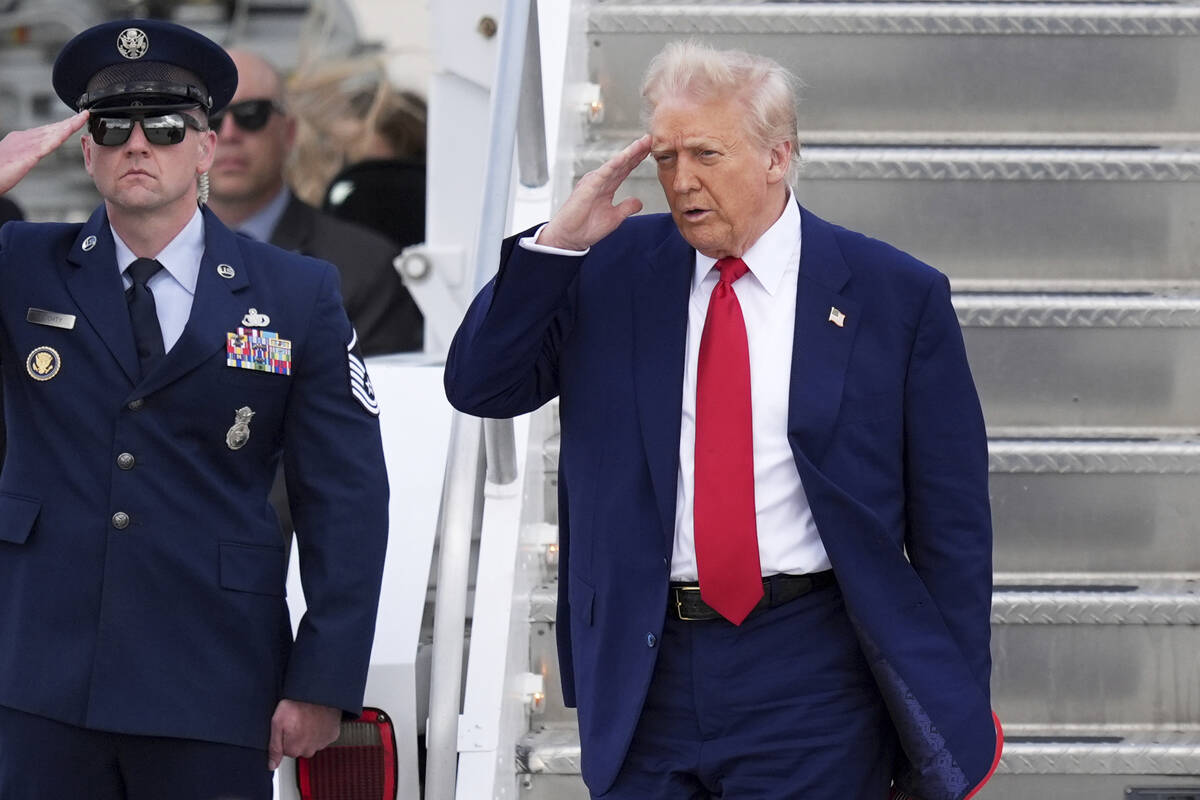RICH LOWRY: Trump’s non-emergency tariffs
The Trump administration is using Humpty Dumpty rules to justify its new tariffs. The anthropomorphic egg famously said in the Lewis Carroll novel “Through the Looking-Glass,” “When I use a word, it means just what I choose it to mean — neither more nor less.” For the Trump team, that word is “emergency.”
President Trump has imposed sweeping global tariffs based on his purported authority under the International Emergency Economic Powers Act of 1977. The president has declared the trade deficit an emergency, which supposedly unlocks his power to impose tariffs that would otherwise have to pass Congress. “Pernicious economic policies and practices of our trading partners,” says a White House fact sheet, “undermine our ability to produce essential goods for the public and the military, threatening national security.”
This an abuse of language and logic in the service of bad policy that hardly interacts with the alleged threat to national security. In a typical congressional botch-job, the IEEPA was meant to be a limitation on presidential emergency powers after the 1917 Trading with the Enemy Act led to ceaseless states of emergency. But according to the Congressional Research Service, as of January 2024, presidents had declared 69 national emergencies under IEEPA, with 39 of them ongoing.
As the IEEPA itself says, the law should be used “to deal with any unusual and extraordinary threat.” The U.S. trade deficit is neither. We’ve been running a deficit since the 1970s. This is the very definition of a chronic issue, the causes of which are not amenable to a bumper-sticker solution. Trump’s tariffs are obviously a product of his sincere belief that tariffs are beneficial. This is a long-term priority for the president, not the result of his hand getting forced by exigent circumstances.
The policy doesn’t even match up with the legal pretext. If national security were really the justification, we wouldn’t be tariffing allies who will — if we don’t fundamentally alienate them — provide supplies and manufacturing capacity to us in a true crisis. All sorts of foodstuffs, from fruits and vegetables to chocolate and coffee, are getting tariffed, and they have nothing to do with national security.
In some cases, the tariffs aren’t even in response to a trade deficit. We are imposing a 10 percent tariff on countries with which we have a surplus. More particularly, how can our trading relationship with our friend Israel be in a state of a crisis, when the Jewish state reduced its tariffs on all U.S. goods to zero? We imposed a 17 percent tariff on Israel, anyway.
Trump’s insistence that a non-emergency that requires congressional legislation is instead an emergency that allows him to act unilaterally may pass muster with the courts; they are loath to second-guess such presidential determinations. Yet, the declaration is still a very bad idea.
The free hand that Trump has arrogated to himself could undermine his own policy — businesses may believe that the new tariff regime can be changed just as easily as it’s been imposed. A congressional enactment would be more stable. And, a future progressive president will surely pick up where Trump left off. What’s to stop President Ocasio-Cortez from declaring a climate emergency?
In sum, it’s best, especially when making consequential determinations, to adhere to the true meaning of words, even the much-abused “emergency.”
Rich Lowry is on X @RichLowry.

















